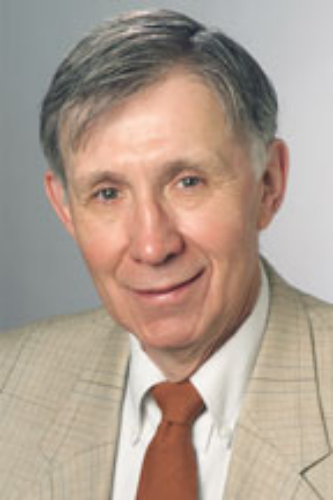May 25, 2010
DePaul Symposium Explores Language, Power and Education June 11
DePaul Symposium Explores Language, Power and Education June 11
Language experts Patricia Gándara and Carlos Cortés will explore power, culture, language and education at the third annual language and education symposium June 11 at DePaul University. Sponsored by DePaul’s School of Education, the event is free and open to the public.
The symposium will be held from 2 to 5:45 p.m. in Room 154 of DePaul’s Schmitt Academic Center, 2320 N. Kenmore Ave., Chicago. The symposium provides an opportunity for the community to hear from and engage with leading voices in the area of language diversity and education.
“This opportunity is invaluable given that both the Chicago metropolitan area and the nation as a whole continue to struggle with issues related to the rights of linguistically diverse students and their families,” said Sonia Soltero, associate professor and director of the Bilingual-Bicultural Education Program at DePaul’s School of Education.
School of Education Associate Dean Ronald Chennault agreed. “Recent actions by the governor of Arizona underscore the importance of having enlightened, informed discussions about language diversity in education,” said Chennault, who is also an associate professor.
In her talk titled “Language Policy, Opportunity and the Latino Education Crisis,” Gándara will discuss language policy, opportunity and the Latino education crisis.
During his talk, titled “Language, Power and the Cultural Competency Movement: Implications for Education,” Cortés will discuss language, power and the cultural competency movement and its implications for education.
“The growth of the cultural competency movement raises serious issues regarding the role of language in such proficiency,” Cortés said. “For example, should a person be considered culturally competent without multiple language facility, and in which languages?”
Gándara is professor of education in the graduate School of Education and Information Sciences at the University of California Los Angeles (UCLA), and co-director of the Civil Rights Project/Proyecto Derechos Civiles at UCLA. Her research focuses on education equity and access for low-income and ethnic minority students, language policy and the education of Mexican origin youth. Gándara has been a bilingual school psychologist, a social scientist with the RAND Corporation, director of education research in the California legislature, commissioner of post-secondary education for the state of California and associate director of the UC Linguistic Minority Research Institute.
Cortés, who will serve as this year’s School of Education commencement speaker, is professor emeritus of history at the University of California, Riverside, and is on the summer faculty of the Harvard Institutes for Higher Education and on the Summer Institute for Intercultural Communication. He also is an adjunct faculty member of the Federal Executive Institute and has lectured widely throughout the United States, Latin America, Europe, Asia and Australia on the implications of diversity for education, government, private business and the mass media.
“Language, Power and Education” is the third annual language and education symposium sponsored by the School of Education. Last year’s symposium, which explored multicultural and bilingual education policy, featured keynote speakers James Crawford and Sonia Nieto and attracted more than 180 participants. The 2008 symposium, which explored language, identity and education, featured renowned scholars Kris Gutierrez, Danling Fu and Awad Ibrahim. For more information about the symposium, contact Sonia Soltero at (773) 325-4788 or ssoltero@depaul.edu.
About the School of Education
DePaul has one of the largest schools of education in the Chicago area, offering degree programs in early childhood education; elementary, secondary, special and physical education; bilingual-bicultural and world languages education; school counseling; reading specialist; dual certification (elementary and special education); and social and cultural foundations in education. For more information, visit http://www.depaul.edu/academics/index.asp#snl.
About DePaul
With more than 25,000 students, DePaul University is the largest Catholic university in the United States and the largest private, non-profit university in the Midwest. The university offers approximately 275 graduate and undergraduate programs of study on two Chicago campuses, four suburban campuses and three international locations. Founded in 1898, DePaul remains committed to providing a quality education through personal attention to students from a wide range of backgrounds. For more information, visit www.depaul.edu.

Carlos Cortes
Patricia Gandara
